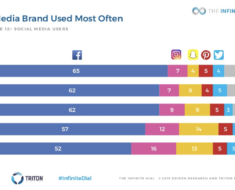
Technology has become an integral part of our daily lives, fundamentally transforming the way we interact with each other. From the rise of smart devices to the ubiquity of social media platforms, the impact of technology on our social interactions is profound and multifaceted.
Impact of Smart Technology on Social Interactions within Families or Between Roommates
Smart technology, including smartphones, tablets, and smart home devices, has redefined how families and roommates communicate and share their lives. On one hand, it can enhance convenience and coordination through shared calendars, messaging apps, and voice assistants. However, it also introduces potential challenges. Family members or roommates may find themselves immersed in their devices, leading to reduced face-to-face communication and quality time together. Striking a balance between leveraging smart technology for efficiency and maintaining meaningful interpersonal connections is essential.
Social Media’s Influence on Social Interaction
Social media platforms have reshaped the way we connect with friends, family, and even strangers. While they offer opportunities for global connectivity and information sharing, they also introduce complexities. Social media can foster superficial relationships, where the quantity of connections may overshadow the quality of interactions. Additionally, the curated nature of online profiles can create unrealistic comparisons and contribute to feelings of inadequacy. It’s crucial to approach social media mindfully, using it as a tool for positive connection rather than a source of isolation.
New Technologies of Communication and Their Impact on Interaction
Emerging communication technologies like video conferencing, instant messaging, and virtual reality are altering the way we engage with one another. They enable real-time, high-quality interactions across geographical boundaries, enhancing collaboration in both personal and professional contexts. However, they also raise concerns about privacy and the blurring of boundaries between work and personal life. As these technologies continue to evolve, it’s important to consider their effects on interpersonal dynamics and individual well-being.
Understanding the Social Impact of Technology
The social impact of technology encompasses the wide-ranging consequences of technological advancements on society and human behavior. It encompasses both positive and negative effects. On the positive side, technology can foster global connectivity, facilitate information sharing, and empower individuals to connect with like-minded communities. It has revolutionized industries, improved healthcare, and expanded educational opportunities.
However, technology’s impact isn’t without its downsides. It can lead to social isolation, decreased face-to-face interactions, and privacy concerns. It can also exacerbate issues like cyberbullying and addiction. Recognizing and mitigating these negative impacts while harnessing the positive potential of technology is a critical aspect of managing its social consequences.
The impact of technology on social interaction is a complex and evolving phenomenon. Smart technology, social media, and new communication tools have transformed the way we connect, communicate, and build relationships. To navigate this digital landscape successfully, it’s essential to strike a balance between using technology as a means to enhance our lives and maintaining genuine, meaningful human connections.
Dil Bole Oberoi





